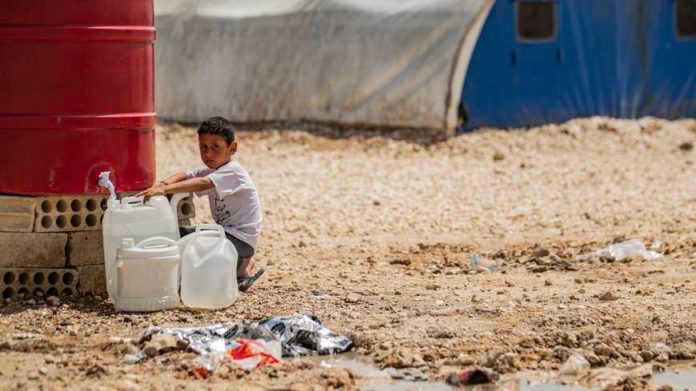By Amberin Zaman
ISTANBUL (Al-Monitor) — Turkey has once again cut water supplies to the Hasakeh region of northeast Syria, and the autonomous administration says Ankara is risking hundreds of thousands of lives in the midst of the pandemic and soaring temperatures to placate Syrians living under Turkish occupation.
The outcry over Turkey’s continued disruption of potable water supplies to the Hasakeh region of northeast Syria is growing louder. Humanitarian aid agencies and officials in the autonomous administration in northeast Syria say that Turkey is putting hundreds of thousands of lives at risk through its actions in the midst of the COVID-19 pandemic and soaring summer temperatures.
Some 89 civil society organizations noted in a statement published today that Turkey and its Sunni rebel proxies had once again cut off the supply of water from the Alok pumping station near Ras al-Ain on August 13. The station provides drinking water for around 800,000 residents and is also the main source of water for tankers supplying potable water to tens of thousands of internally displaced Syrians and Islamic State prisoners and their families. It was the eighth such stoppage since Turkey invaded Ras al-Ain in the wake of its military assault against US-backed Kurdish forces controlling the area in October 2019. Alok was rendered inoperable during the Turkish invasion and service has been only partially restored.
“Sporadic water forced the population of Syria’s northeast to rely on unsafe alternatives, endangering their lives on top of their fight against COVID-19,” the statement read. “Suspending the Alok water station puts the lives of hundreds of thousands of people at risk, since washing hands with water and [soap] is essential to protect themselves against the pandemic,” the statement read.
At least 20 people have died as a result of the novel coronavirus in the Kurdish-administered area. There are 294 active cases, according to the Rojava Information Center, a research organization that publishes regular reports on northeast Syria. There is mounting worry about the pandemic spiraling out of control. The London School of Economics predicted in a recent study that the number of cases nationwide could reach two million by the end of August.








